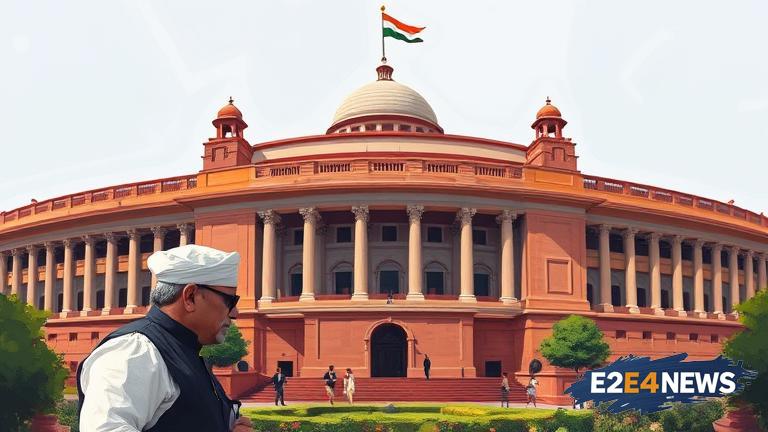The Indian government has been accused of systematically blocking the working of Parliament, according to Congress MP Manickam Tagore. In a recent statement, Tagore claimed that the government has been using various tactics to disrupt the functioning of the legislative body. He alleged that the government has been doing this to avoid discussing important issues and to prevent the opposition from raising critical questions. The Congress MP stated that the government’s actions are a threat to democracy and the functioning of Parliament. He also accused the government of using its majority to bulldoze bills and legislation without proper discussion or debate. Tagore’s allegations come at a time when the Indian Parliament is facing criticism for its poor productivity and lack of meaningful discussions. The opposition has been accusing the government of not allowing them to raise important issues and of using parliamentary procedures to silence them. The government, on the other hand, has been denying these allegations and claiming that the opposition is responsible for the disruptions. The issue has sparked a heated debate in the country, with many questioning the role of the government in parliamentary proceedings. The opposition has been demanding that the government allow for more discussion and debate on important issues, while the government has been insisting that it is committed to the smooth functioning of Parliament. Despite the denials, many believe that the government’s actions are indeed disrupting the functioning of Parliament. The allegations have also raised questions about the independence of the legislative body and the role of the opposition in holding the government accountable. The Indian Parliament is a critical institution in the country’s democratic system, and any attempts to undermine its functioning are seen as a threat to democracy. The government’s actions have been widely criticized by the opposition, civil society, and the media. Many are calling for greater transparency and accountability in parliamentary proceedings, as well as more opportunities for discussion and debate. The issue is likely to continue to be a major point of contention in the coming days, with the opposition vowing to continue its fight for more transparency and accountability in Parliament. The government, on the other hand, is likely to face increasing pressure to allow for more discussion and debate on important issues. As the debate continues, one thing is clear: the functioning of Parliament is critical to the health of India’s democracy, and any attempts to undermine it will have serious consequences. The country’s democratic institutions are facing a major test, and it remains to be seen how the government and the opposition will respond. The allegations have also sparked a wider debate about the role of the government in parliamentary proceedings and the need for greater transparency and accountability. Many are calling for reforms to the parliamentary system to ensure that it is more representative and accountable to the people. The issue has also highlighted the need for a more robust and independent opposition, which can hold the government accountable and ensure that the interests of the people are represented. In conclusion, the allegations made by Congress MP Manickam Tagore have sparked a major controversy and highlighted the need for greater transparency and accountability in parliamentary proceedings. The government’s actions have been widely criticized, and it remains to be seen how the situation will unfold in the coming days. The functioning of Parliament is critical to the health of India’s democracy, and any attempts to undermine it will have serious consequences. The country’s democratic institutions are facing a major test, and it is up to the government and the opposition to ensure that they are protected and strengthened.





